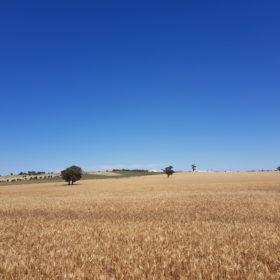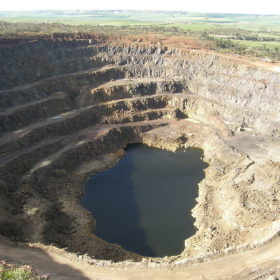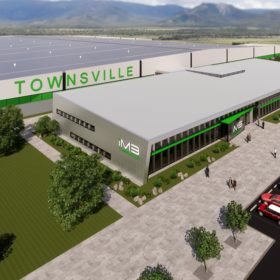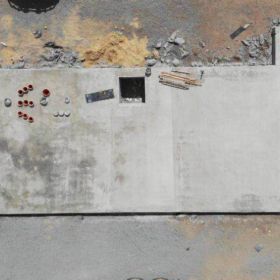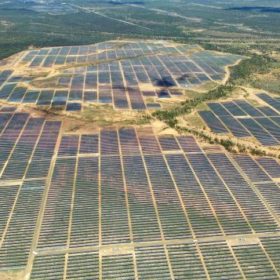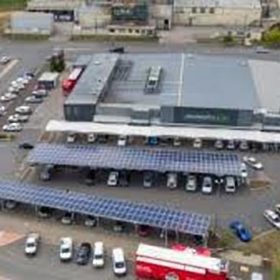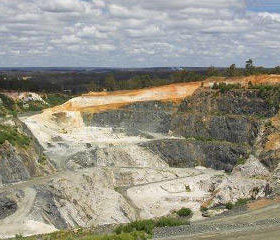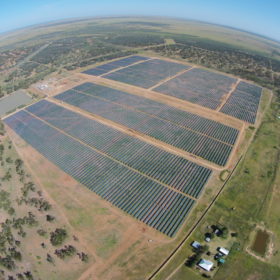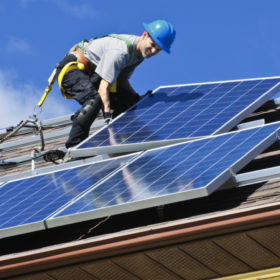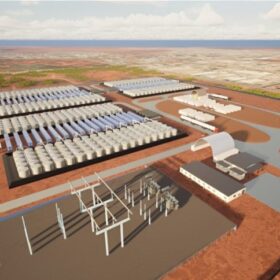Bomen Solar Farm acquired by Spark Infrastructure, inks PPA with Westpac towards its 100% renewables goal
In a major shift towards owning renewable energy generation assets, electricity network infrastructure owner Spark Infrastructure has fully acquired the 120 MW Bomen Solar Farm in NSW. The project has inked a power purchase agreement with Westpac, which marks a big step towards its goal of sourcing 100% renewable electricity by 2025.
AGL plans 250 MW pumped hydro project in South Australia
Australia’s biggest power producer has secured the right to develop, own and operate a massive pumped hydro energy storage project at Hillgrove Resources’ Kanmantoo copper mine in South Australia’s Adelaide Hills region.
Major progress on Townsville battery “gigafactory” study
Significant progress has been reported on the feasibility study which aims to progress the establishment of a 15 GWh lithium-ion battery factory in Townsville. The study is conducted by the Imperium3 Townsville consortium.
Sonnen reveals plans to expand with Shell’s support, starts cobalt-free battery initiative
German battery maker sonnen is following its takeover by Shell with plans to expand its market reach. It says it will use the opportunity to jointly push the energy transition. With an eye on sustainability, sonnen has launched an industry-wide initiative to push cobalt-free lithium-ion batteries for home storage systems.
UNSW is developing Australia’s first large-scale hybrid storage system
The University of New South Wales (UNSW), the birthplace of pioneering PV technologies, is now developing another innovative solution: a large-scale hybrid energy storage that will combine lithium-ion batteries and hydrogen fuel cells. The first system will be installed at Risen Energy’s 121 MW Yarranlea Solar Farm in Queensland.
FRV commissions 100 MW in Queensland, vows to build 5.8 GW globally by 2024
Spanish developer Fotowatio Renewable Ventures (FRV) has announced that its latest operational project in Australia, the 100 MW Lilyvale solar plant, is now up and running. FRV’s parent says it is strategically investing US$900 million throughout the world in 2019 to increase its installed capacity to 5.8 GW by 2024.
Woolworths becomes world’s first retailer to issue green bonds
The Australian supermarket giant is issuing green bonds to fund the development of low-carbon supermarkets and the installation of solar at its stores and distribution centres.
WA battery research facility secures $25m of federal funding
The Perth-based Future Battery Industries Cooperative Research Centre (FBICRC) will address industry-identified gaps in the battery industry value chain, support battery deployment and optimise the circular economy for battery recycling.
CEC warns jobs, projects at risk as Queensland introduces new solar rules
The Queensland government has laid down regulations for solar farms that will allow only licensed electricians to install or remove PV panels. But the new rules will put hundreds of local jobs at risk and could bring some projects to a standstill, the Clean Energy Council (CEC) has warned.
Victorian government to cap solar rebates in response to overwhelming interest
Due to the immense success of the program — and with rebates now almost fully subscribed — Solar Victoria will accept a final 2,000 applications before the end of June, the state government has announced. New solar rebates will be available in the next financial year.

